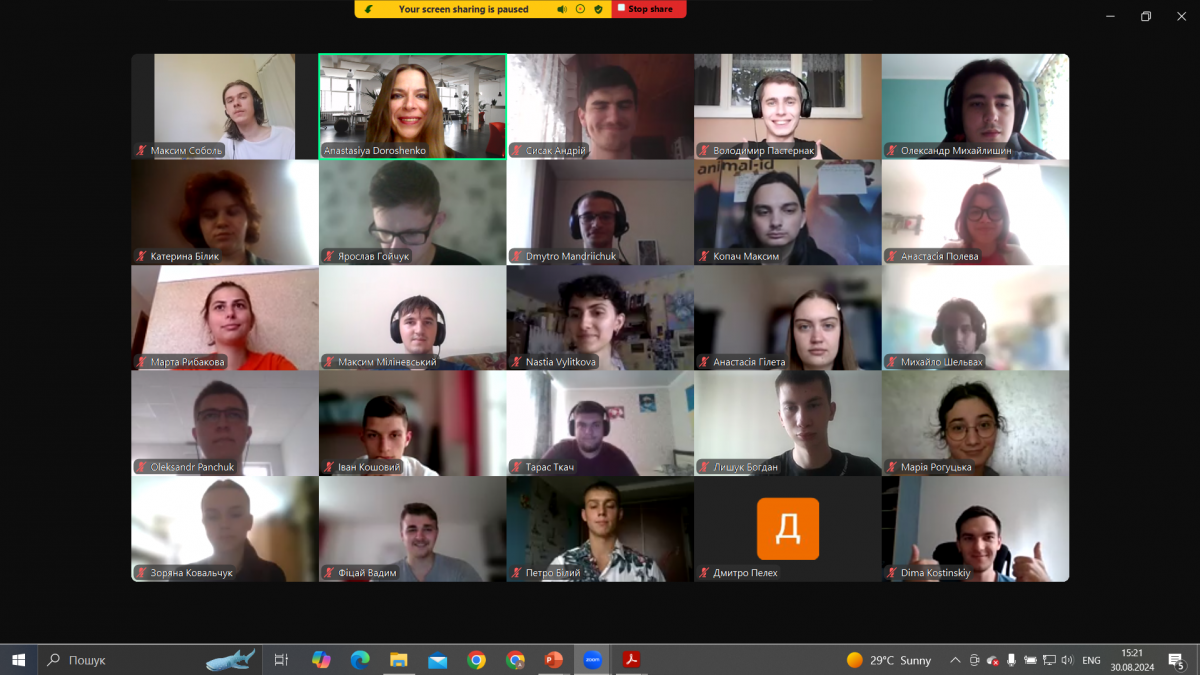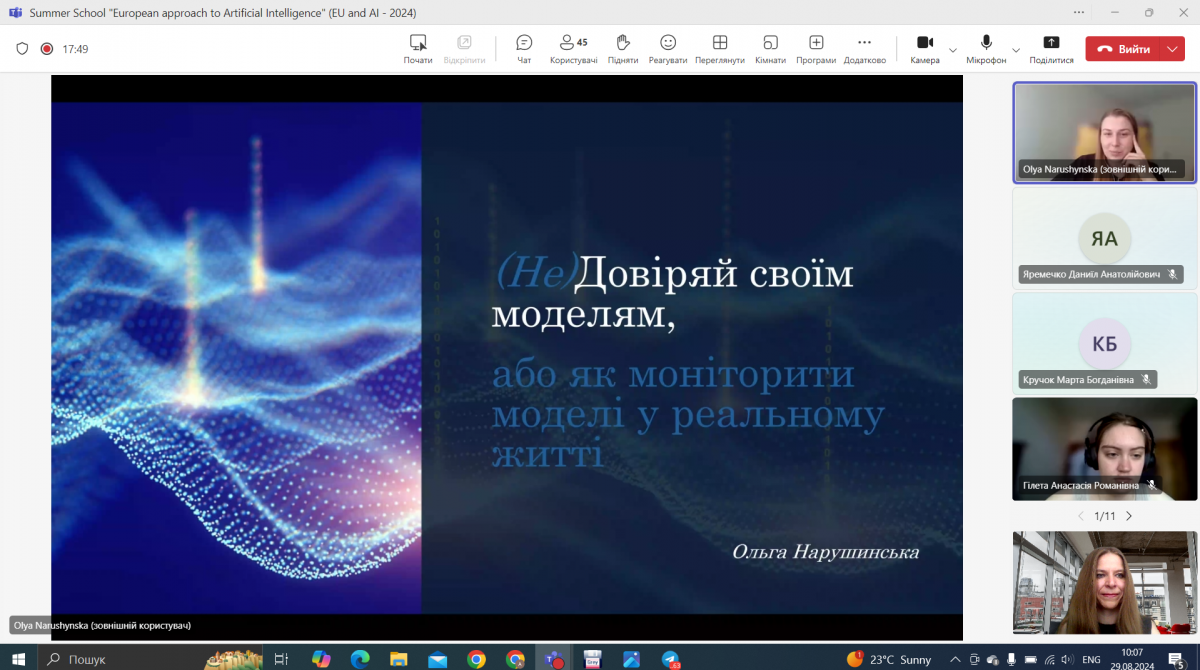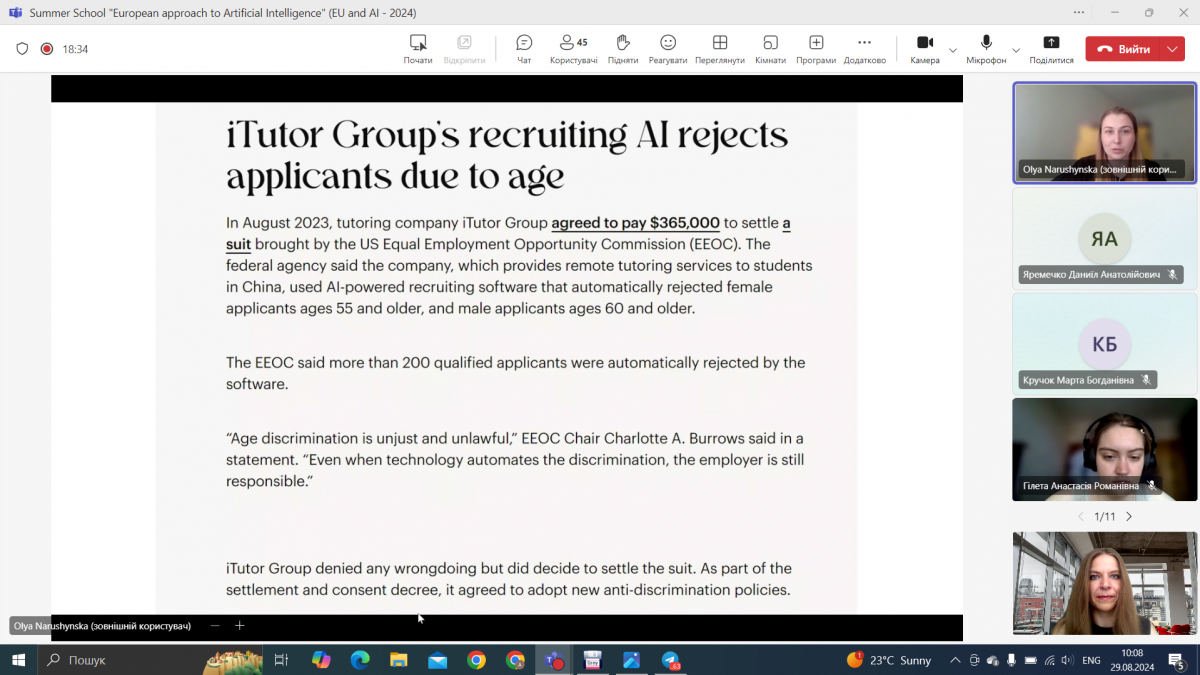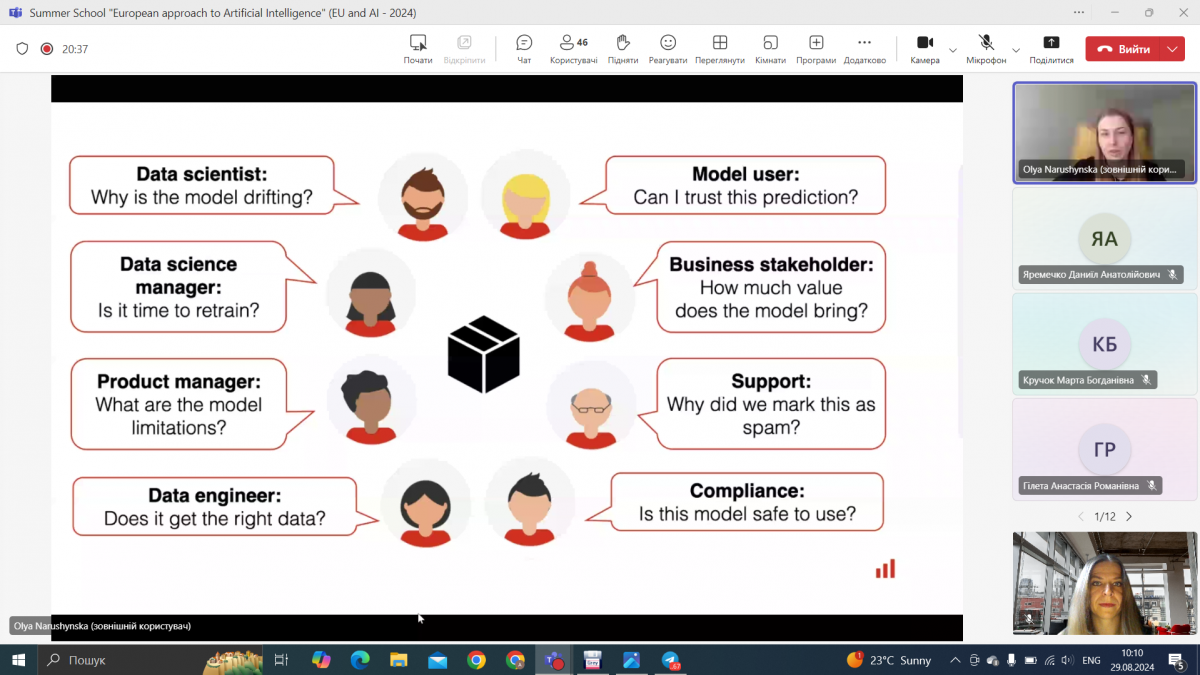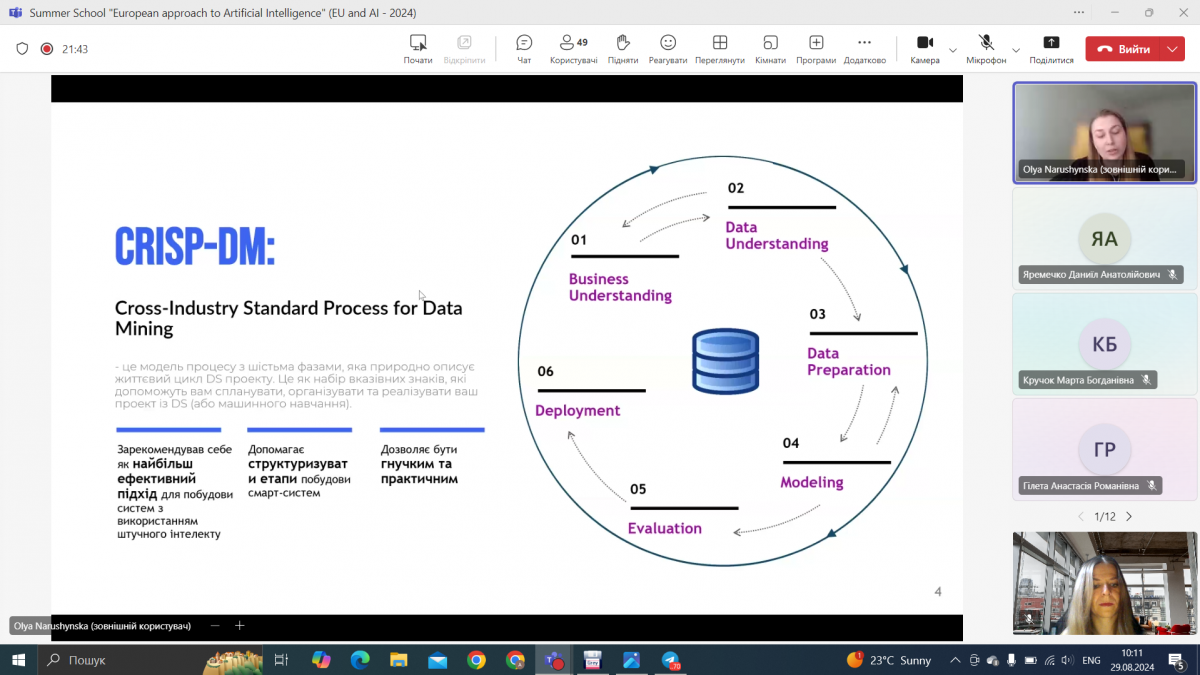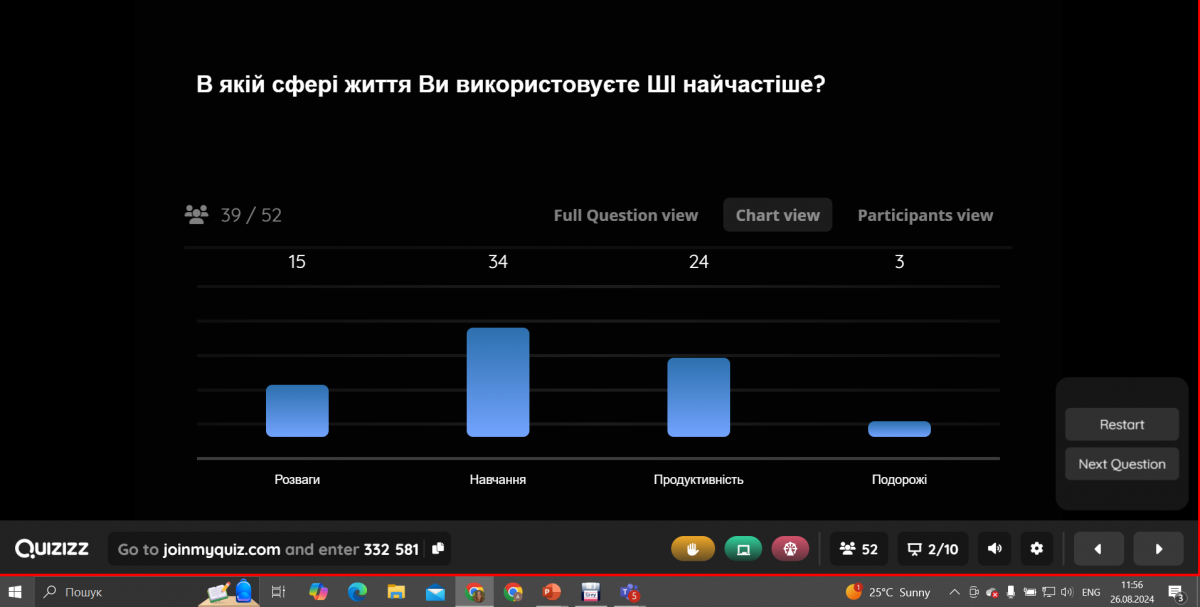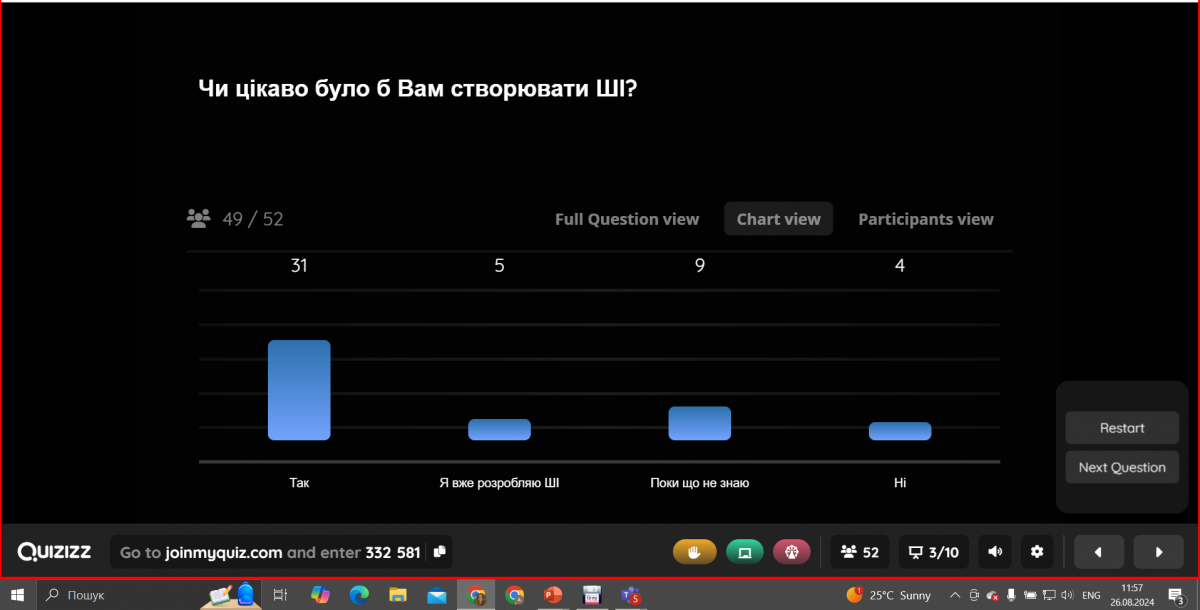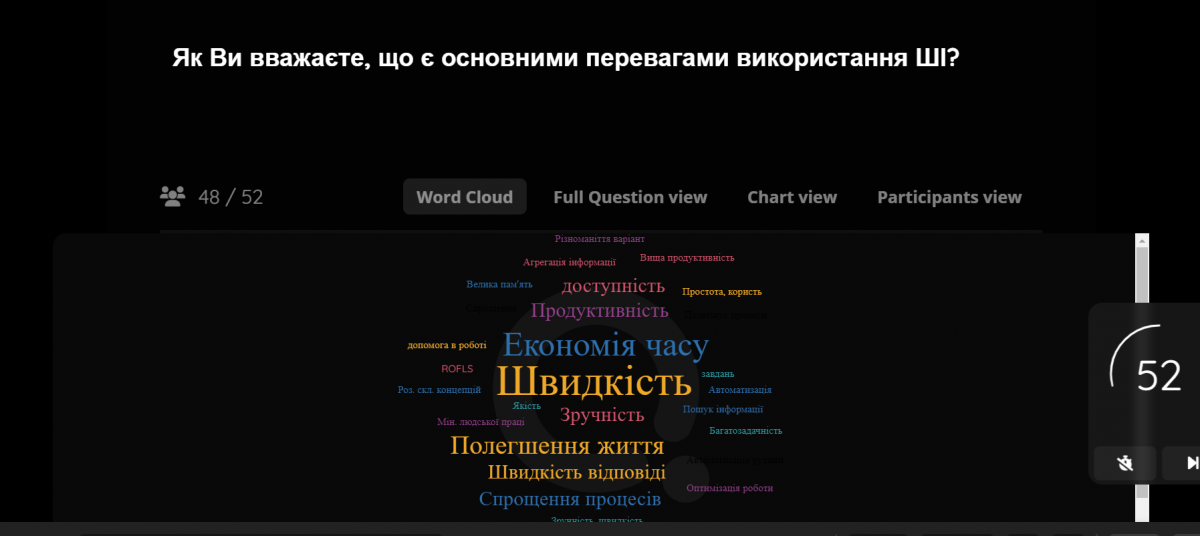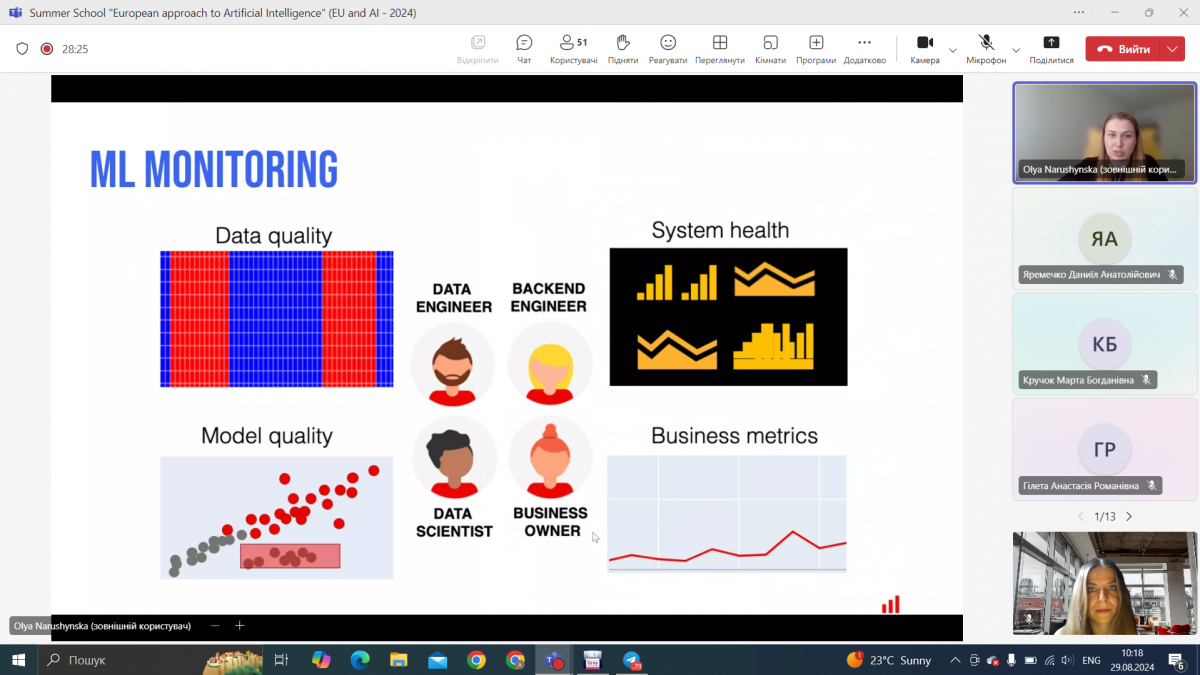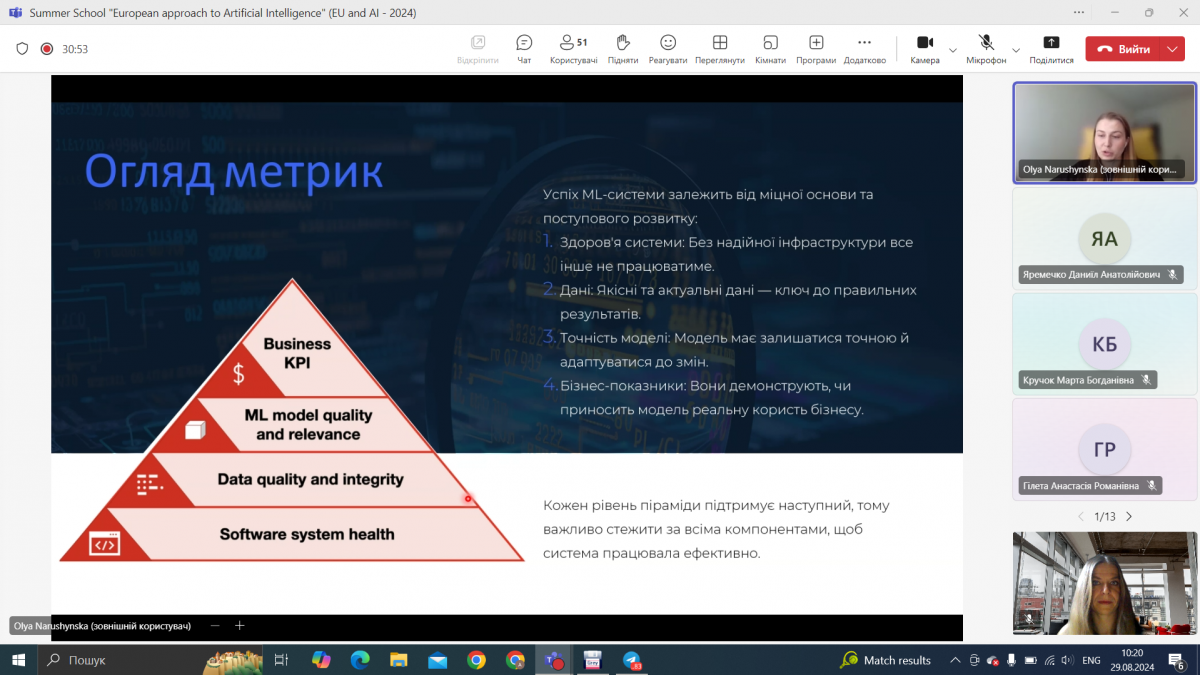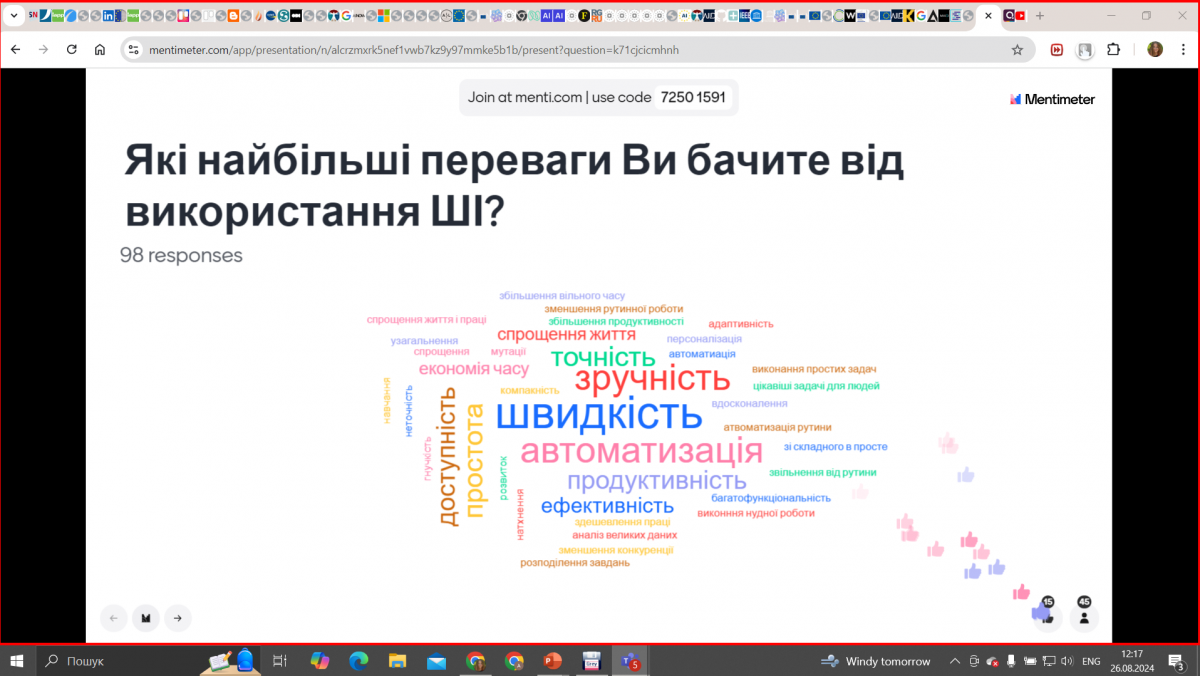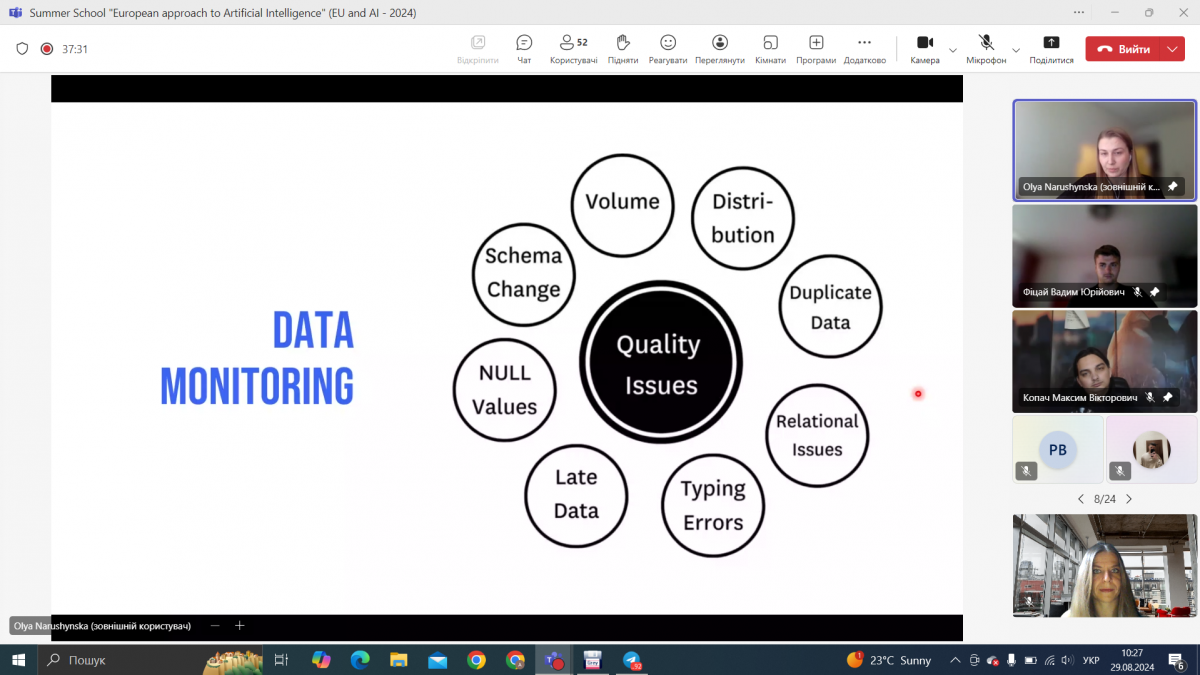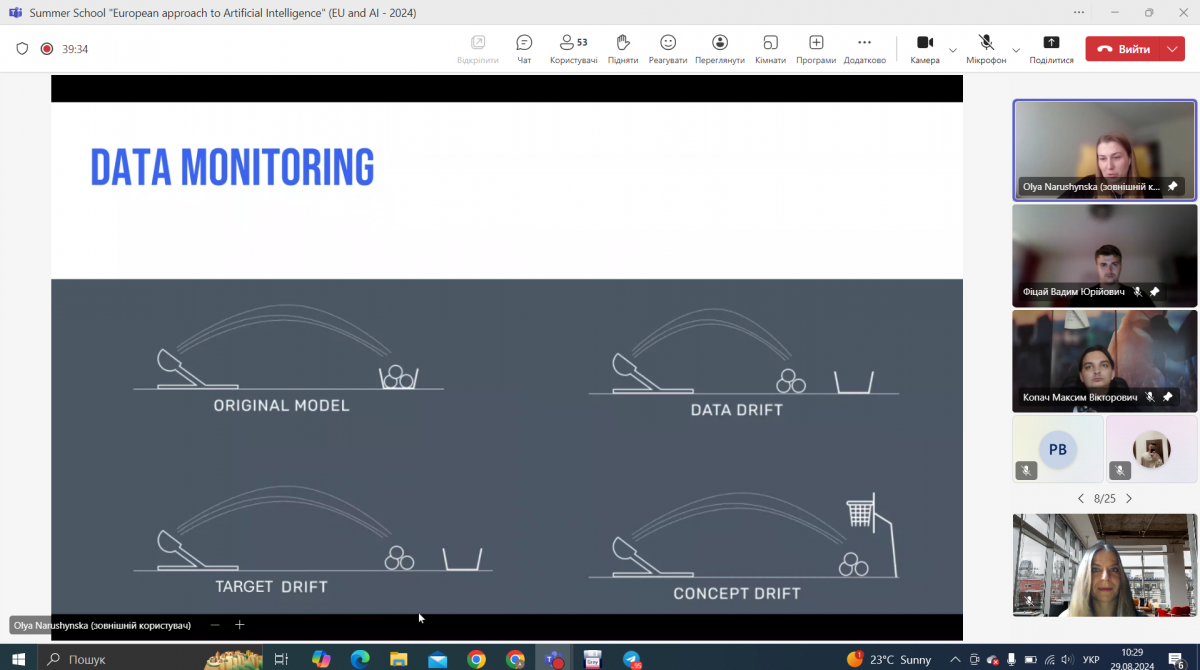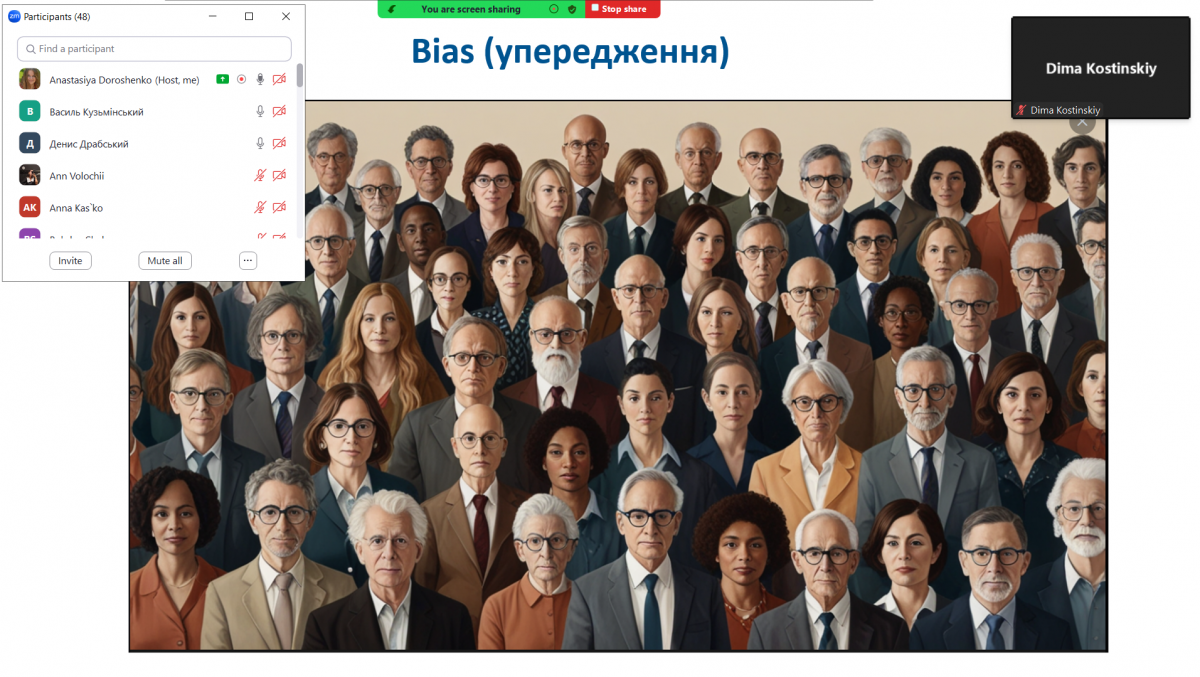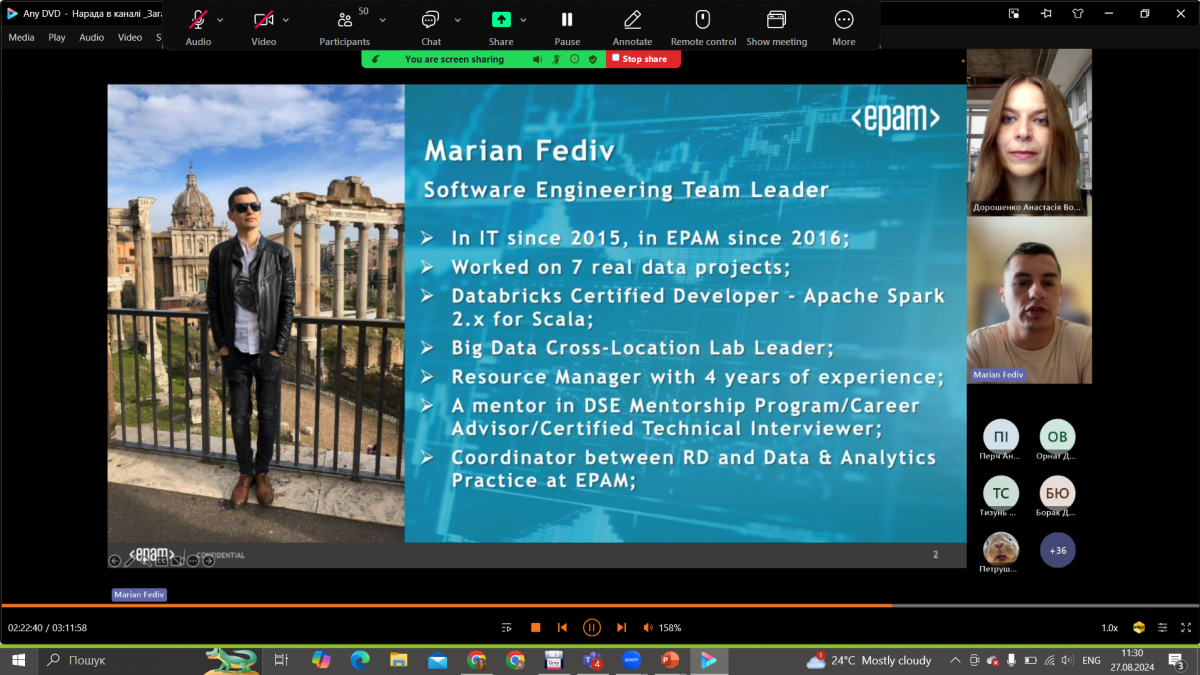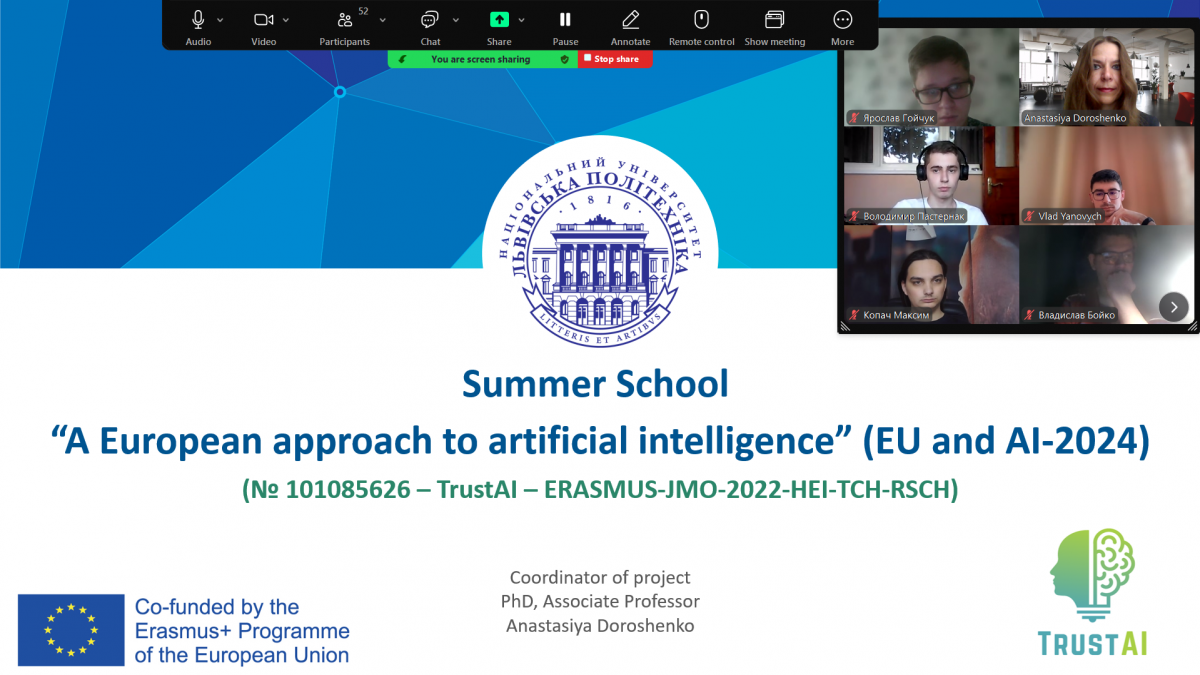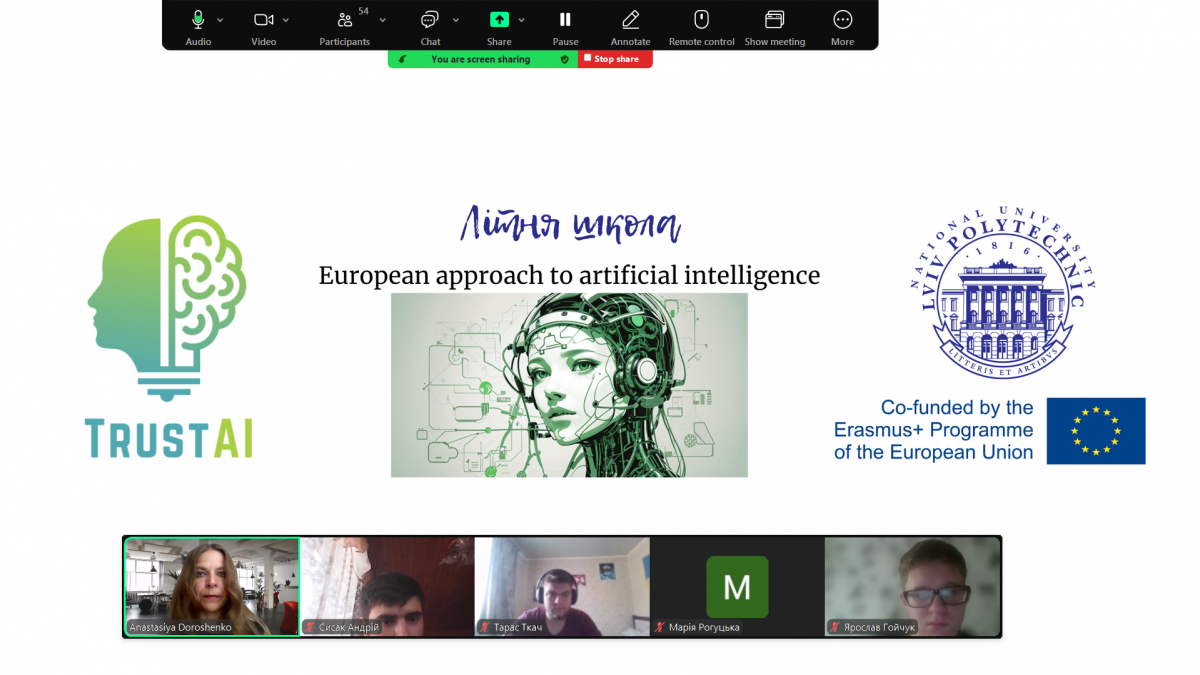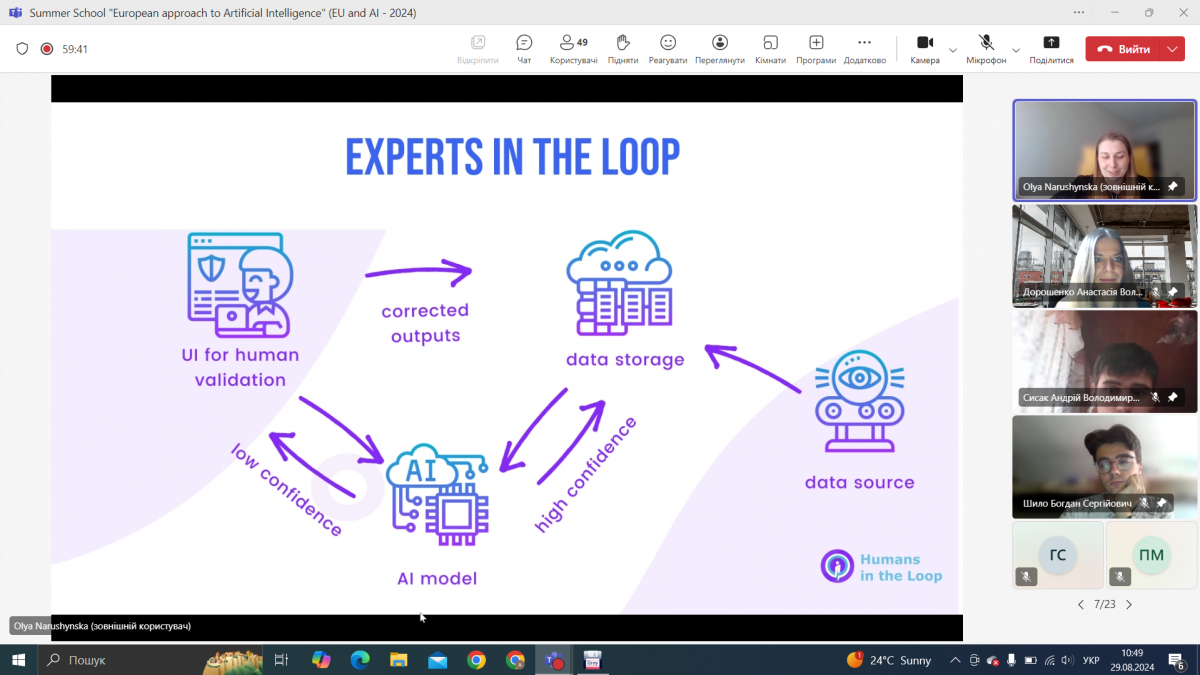The Summer School «European Approach to Artificial Intelligence» was organized within the framework of the international Erasmus+ educational project Jean Monnet «Trustworthy artificial intelligence: the European approach» (№ 101085626 – TrustAI – ERASMUS-JMO-2022-HEI-TCH-RSCH). It brought together about 60 energetic people, motivated and ready to dive into the world of AI.
The program of the Summer School was very intense: from August 26 to 30, students participated in workshops and seminars, attended lectures by invited speakers who discussed modern AI technologies, their capabilities, prospects, and limitations. And from September 1 to 15, they implemented their own projects, which were presented on September 20. The developments included many useful systems: medical systems for stroke detection, cancer diagnostics, bank customer assessment, educational and recruiting systems. The developed models not only demonstrated high accuracy but also underwent monitoring during their use. The reliability of the developed systems was assessed in accordance with the requirements of the AI Act.
At the Summer School, guest speaker Olha Narushynska, Data Science/Artificial Intelligence consultant, Lead Data Scientist at Fintech company, delivered a presentation entitled «(Don’t) Trust Your Models, or How to Monitor Models in Real Life». She spoke about the importance of monitoring developed and implemented AI systems in the process of their use. The lecturer also held an interesting workshop where students had the opportunity to practice monitoring AI models.
Another guest speaker was Marian Fediv, Software Engineering Team Leader at EPAM Systems, who spoke about the current state of such a popular area as Big Data, its peculiarities, technologies, approaches used, and reported on best practices and interesting tasks of using Big Data.
Anastasia Doroshenko, Project coordinator, Associate Professor at the Department of Automated Control Systems, the Institute of Computer Science and Information Technologies, Lviv Polytechnic, spoke about modern trends in artificial intelligence, tasks that are solved with the help of AI, and various algorithms used for this purpose. A lot of attention was paid to such problems in the use of AI systems as bias and fairness. The speaker reviewed different types of biases that can occur in AI systems and demonstrated methods of their elimination using examples. During the organized workshop, students had the opportunity to solve a practical problem using machine learning algorithms.
Another section of the Summer School was dedicated to generative AI and, in particular, such popular products as ChatGPT and Midjourney. During the section, students not only learned what generative AI is, but also tested the work of the mentioned systems by offering them tasks of different levels of complexity and creativity. After analyzing the results, they moved on to the second part, dedicated to the study and understanding of such concepts as reliable artificial intelligence and ethical AI.
The European approach to machine learning, in particular the EU AI Act, was also considered as a new regulatory framework for AI in the EU, which provides for a risk-based approach to the creation of AI systems. Discussion of the future development of artificial intelligence systems, the need for its regulation, and familiarization with examples of its use without ethical compliance generated heated discussions, interesting thoughts and ideas among the Summer School participants.

